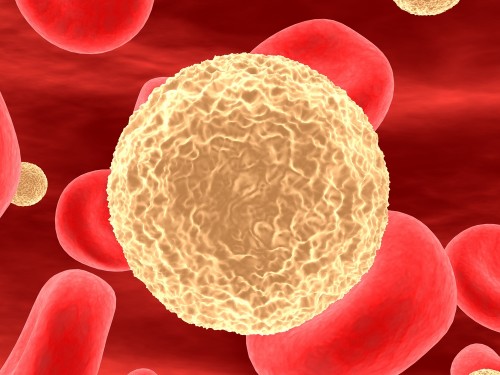Scientists in Great Britain "used" the epidemic of 2009 as a natural laboratory to study the issue of why there are humans who seem to be immune to serious illness.

Scientists are moving closer to developing a universal flu vaccine after using the 2009 pandemic as a natural laboratory to study why some people seem immune to severe illness.
The scientists at Imperial College London asked volunteers to donate a blood sample right when the swine flu epidemic broke out and report any symptoms they had during the next two flu seasons. They found that those who did not suffer from the more severe symptoms of the flu had more CD8 T cells. These are immune system cells that eliminate viruses in the blood at the very beginning of the infection process.
The researchers believe that a vaccine that stimulates the body to produce more such cells may be effective in preventing influenza viruses, including new strains that are transmitted to humans from birds and pigs, from the severe stage of the disease. The findings were published in the journal Nature Medicine.
Prof. Ajit Lalbani from the National Heart and Lung Institute at Imperial College London, who led the research, said: "New strains of influenza appear all the time, some of them deadly, and therefore the holy grail would be to create a universal vaccine that would be effective against all strains of the flu."
The flu vaccines available today cause the immune system to produce antibodies that recognize the structures on the surface of the virus to prevent infection with most common flu strains. However, humanity is always one step behind the viruses and every year the vaccines must be changed as new viruses with a different surface structure appear. In the past, experimental models have suggested that T cells may protect against flu symptoms, but so far the idea has not traveled in humans during a pandemic.
Prof Lalbany's team recruited 342 staff members and students at Imperial College to take part in the trial in autumn 2009. The volunteers donated blood samples and were given nasal swabs. They sent emails every three weeks and asked the subjects how they were feeling and asked them to fill out questionnaires about their health status. If they experienced flu symptoms, they wiped their nose with a tissue and sent it to the lab.
They found that those who filled out the questionnaire and were seriously ill with the flu had fewer CD8 type T cells in their blood, and those who caught the flu without symptoms or with only mild symptoms, contained more such cells in their blood.
Prof. Lalabani says: "The immune system produced these cells in response to a normal seasonal flu. Unlike antibodies, they attack the core of the virus, which does not change even when a new strain arrives. The 2009 pandemic provided a unique natural experiment to test whether T cells could recognize and protect against new strains they had not previously encountered and for which we did not have the appropriate antibodies.
"Our findings lead us to the hypothesis that by causing the body to produce more T cells of the CD8 type, it will be possible to protect humans against these disease symptoms. This will provide us with a template for developing universal flu vaccines. We already know how to stimulate the immune system to produce such cells through vaccines. Now that we know these T cells can protect, we can design a vaccine to prevent humans from getting the symptoms and infecting others. This could curb the seasonal flu every year and protect people from future epidemics."

4 תגובות
Does anyone proofread the articles here??
indeed unpleasant
Some spelling mistakes!
Hessim >> Heshim*
Traveling >> Tried*
to participate >> participate*
I swallowed >> my husband*
brother >> but*